While the programs will be eliminated, classes in those areas will still be offered, van Noort repeatedly told the board’s Committee on Educational Planning, Policies, and Programs before the board’s action.


While the programs will be eliminated, classes in those areas will still be offered, van Noort repeatedly told the board’s Committee on Educational Planning, Policies, and Programs before the board’s action.

Goodwill Industries of Northwest North Carolina’s Career Quest program uses a combination of video interviews and tours to introduce high school students to the Asheville job market.
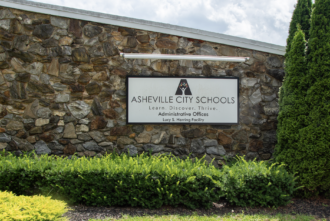
Even after making some cuts to increased expenditures and allocating $3 million from reserves, the district may need to cut staff to close the $1.2 million budget gap, she said.
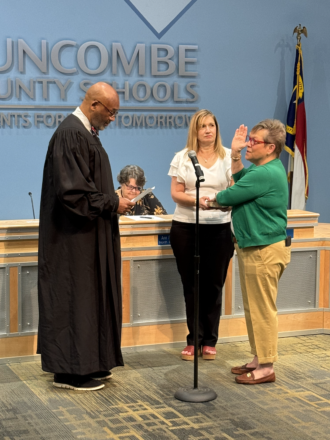
The Buncombe County Board of Education is not happy with the direction state legislators are taking in funding schools.
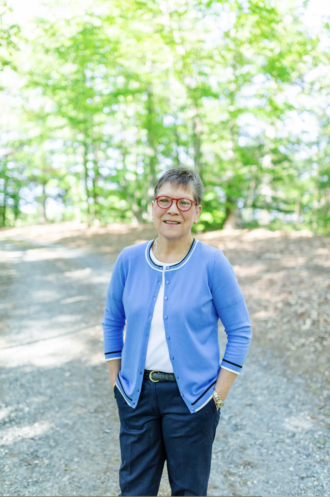
From child care centers to colleges, Glenda Weinert’s education experience has influenced students young and old. But it’s her business expertise and political leadership as former chair of the Buncombe County Republican Party that make her a unique addition to the Buncombe County Board of Education.

On June 10, the Asheville City Association of Educators delivered a letter signed by the Parent Teacher Organizations or parent teams from all eight of the district’s schools.
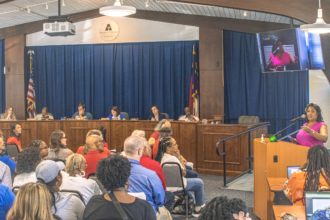
After several months of discussion, including a contentious meeting with the Asheville City Board of Education June 3, Mike Sule, who was spearheading the project, asked the board to remove the project from its agenda June 10.

At a rally in Pack Square June 6, the Buncombe County Association of Educators, an organized advocacy group for teachers, argued that the state of North Carolina and Buncombe County governments should allocate more funding for education.
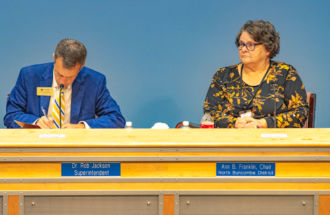
Former Buncombe County GOP Chair Glenda Weinert, who is a current member of the Buncombe County Schools Foundation, received the most votes on June 6 in the opening round of an open-ended series of votes among the six sitting members of the board.
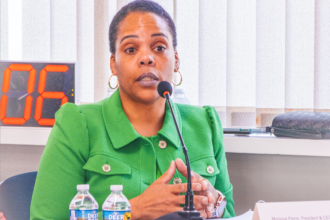
“We’ve been out of compliance for 14 years,” Housing Authority of the City of Asheville President and CEO Monique Pierre told a May 22 meeting of the HACA Board of Commissioners.

“Institutional neutrality promotes the open exchange of ideas and avoids inhibiting scholarship, creativity, and expression,” UNCA Chancellor Kimberly van Noort wrote in a public update to students and faculty earlier this month. “Compromising this position carries great risks.”

James Cassara, a volunteer at the YMCA of Western North Carolina, discusses the local nonprofit’s many services.
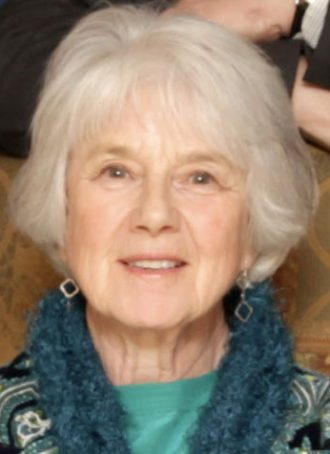
Samantha Maynard is a volunteer at Black Mountain Home for Children, a nonprofit that serves children as young as infants and as old as college age.

Frederick Carl DeTroia discusses the joys of working with young children through Big Brothers Big Sisters of Western North Carolina.
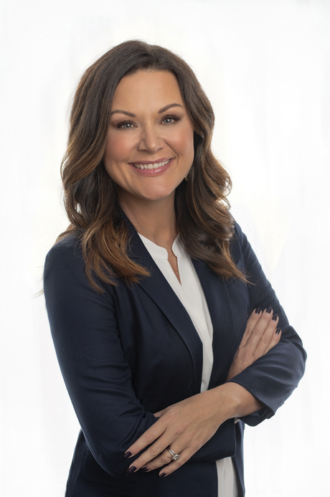
In a statement to the board at a special called work session May 15, an emotional Simpkins said she was stepping down for “personal reasons” and because of “some changes going on.”
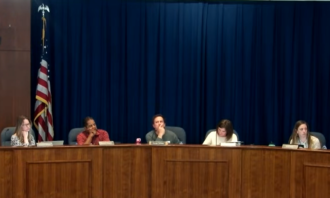
Recent comments by the Buncombe County Board of Commissioners has some members of the Asheville City Board of Education questioning the future costs associated with the former Asheville Primary School site on Haywood Road.

Kate Wargo moved to Asheville in fall 2021 with hopes for a fresh start. Teaching elementary school during the COVID-19 pandemic had left her exhausted, anxious and depressed. “It was the first time I felt dehumanized,” she says of the previous two years teaching fourth grade in Pennsylvania.
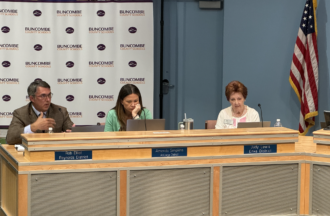
The Buncombe County Board of Education passed an increased funding request of $13.5 million from the Buncombe County Board of Commissioners at its May 2 meeting based on a “vast number of assumptions and projections,” according to BCS Chief Financial Officer Tina Thorpe.
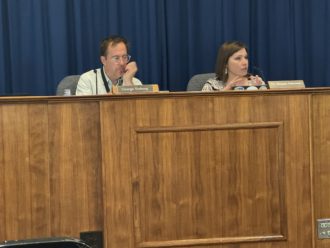
As state funding falls with enrollment and $1 million in COVID-era federal funding ends, the district is facing a $5.7 million gap before new funding requests and projected savings are considered, Superintendent Maggie Fehrman reported to the board April 15.
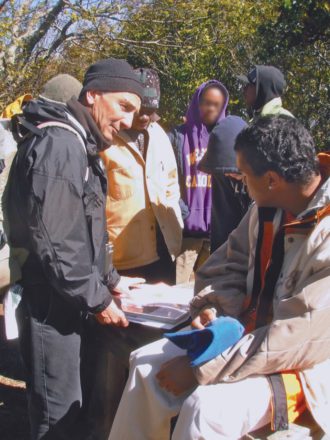
It’s been 10 years since Asheville City Schools displaced its once successful majority-Black alternative program from its home on Montford Avenue. At least one longtime educator calls that the worst decision the district has made this century.

Under Project Collaborate, funded by the U.S. Department of Labor, local community colleges are trying to train local workers in high-demand fields.